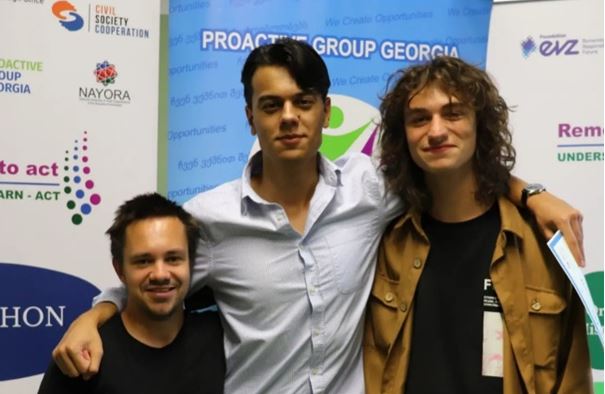By Sascha Klughardt, Ideathon Participant from Germany
As part of the remember to act ideation I was given the opportunity to travel to Tbilisi, the capital of Georgia, as part of a small group to work on ideas to foster intercultural exchange and the culture of remembrance. Together with Georgi from Georgia and Nariman from Azerbaijan, I developed an idea and concepts to promote it. We were supported in this endeavor with know-how on the topic of project management and planning.
I found the project very informative, enlightening as well as adding some new perspectives. I was able to learn a lot of new things from the training and at the same time try out what I had learned in a practical context. For example, the concept of the elevator pitch or how to structure ideas in a clear and rapid process. Therefore, the training sessions were definitely an asset in terms of their content.
It was an interesting experience to engage with the other participants in the project’s context as well as in social and private activities. There was a lot to learn from the different and diverse perspectives. It was also exciting to get out of a regular environment, where cultural dynamics are a part of the daily routine.
On the one hand, I learned to question perspectives and norms more strongly from a cultural viewpoint. On the other hand, with regard to project management and the coordination of teams and groups, I gained a lot of valuable experience. I have also learned to effectively transfer ideas into target-oriented actions. Of course, I also gained a lot of new knowledge about Georgian culture, particularly about the unique history of the country, its people and also its culinary culture.
For me, the most surprising thing was the insight into Georgia’s culture and narrative. Georgia is a very interesting country with its own culture and yet also external cultural influences shaped by many different historical circumstances. The guided tour of the Museum of Georgian History was particularly striking in this regard. In the process, it became possible to understand more precisely why certain national narratives are established in the context of a historical progression.
Especially in the intercultural context and in connection with the culture of remembrance as well as the culture of exchange, I gained a lot of experience and practical knowledge from this short but very intensive stay in Tbilisi for my future life and my dealings with people. All in all, it was a significant exchange with a lasting impact.

